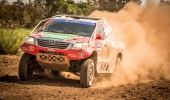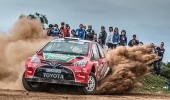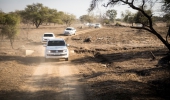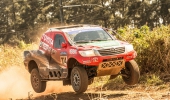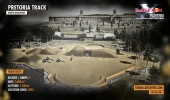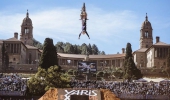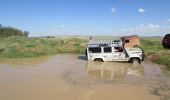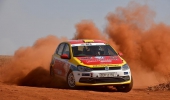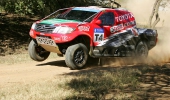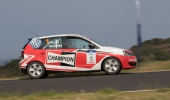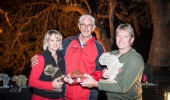Words: TOYOTA SA
With the 2016 edition of the Dakar Rally just over three months away, the Toyota SA Dakar Team is in the midst of preparing for the mammoth event. As part of this preparation, the team is taking part in the annual Rally of Morocco, which starts on October 3rd in the north African country.
Photo supplied
"To us, taking part in Morocco offers the opportunity to test our race vehicles in conditions that are similar to some parts of the Dakar," explains the Toyota SA Dakar Team's Team Principal, Glyn Hall. "So it is a chance to see how our vehicles fare in actual race conditions, which mimic to a certain degree the terrain of the Dakar."
The Rally of Morocco forms part of the FIA's Cross Country World Cup, and as such many of the players that will be lining up at the start of Dakar 2016 will be taking part. While many of the teams see this event as a real-world test for Dakar, it does offer a chance to see how the different cars perform in relation to one another.
"We'll be taking part with two vehicles this year," continues Hall. "Giniel de Villiers and Dirk von Zitzewitz ran one of our Toyota Hilux race vehicles here last year, and showed exceptional pace at the time. This year we've decided to give Leeroy Poulter and Rob Howie the opportunity to take part too, though they will be driving an older spec vehicle, mainly in order to gain experience of the race."
With that said, the team will also be testing a variety of components and suspension settings will in Morocco. The event starts on October 5th 2015, with a 330 km stage near the Moroccan city of Zagora. This is followed by:
Stage 2 - Oct 6th: 224 km, Loop of Drâa
Stage 3 - Oct 7th: 274 km, Loop of M'hamid
Stage 4 - Oct 8th: 293 km, Zagor-Agadir
Stage 5 - Oct 9th: 237 km, Loop of Agadir
"We had a good outing here last year," says South Africa's Dakar legend, Giniel de Villiers. "We had a couple of problems that stopped us from challenging for the lead, but we ended up winning a stage before the end. And we're looking forward to driving in the dunes of north Africa again."
The sandy terrain makes navigation a challenge, and this is also good preparation for the two navigators in the team, Dirk von Zitzewitz and Rob Howie.
"Overall the Rally of Morocco is a mini version of the Dakar," continues Hall. "Which is exactly what we need at this point, not only in terms of the development of the Race Toyota Hilux, but also for the team to get into the right mindset for the Dakar."
Development and testing will continue back in South Africa, when the team returns on October 11th. "After that we'll have one more big test session in South Africa, before shipping the cars off to South America for the race," concludes Hall.
Fans can follow the fortunes of the Toyota SA Dakar team by visiting www.toyota.co.za, www.facebook.com/toyotasouthafrica or by following @toyotaSA on Twitter.
Toyota Motorsport South Africa Acknowledges Its Dakar Sponsors, Specialist Official Suppliers and Technical Partners: Hallspeed, TFM, Castrol, SKF, Spanjaard, Robor, NGK, Donaldson, Mastercraft, Sat4Rent, Oakley, Edgecam, Reiger, Supreme Springs, FreeM, Bosch, Smiths Manufacturing and Shatterprufe. Also Duxbury Netgear, Innovation, Toyota Financial Services, SAA Cargo and Toyota.
More information
Difference between Cross-Country, Off-Road and Rally racing: The Morocco Rally, similar to Dakar, is a cross-country race where vehicles race between GPS waypoints as opposed to existing roads. In a rally (a la WRC) the cars race along closed roads. In an off-road race the competitors follow routes not suitable for cars, but they still have a set route to follow.
For the purpose of the Morocco Rally, the event is called a rally, though it doesn't conform to the definition of a traditional rally. It has timed race (stages) and liaison (open road) sections where they do not race against the clock, but still have to depart at certain predetermined times and clock in before a given deadline to avoid time penalties.
In a rally, competitors race in similar fashion, but use multiple short stages (up to 25-35km each; around 5 or 6 special stages per day; 2-3 days per event).
In off-road racing an event consists of one long stage on a single day only, and an event is usually run over 2 days.
